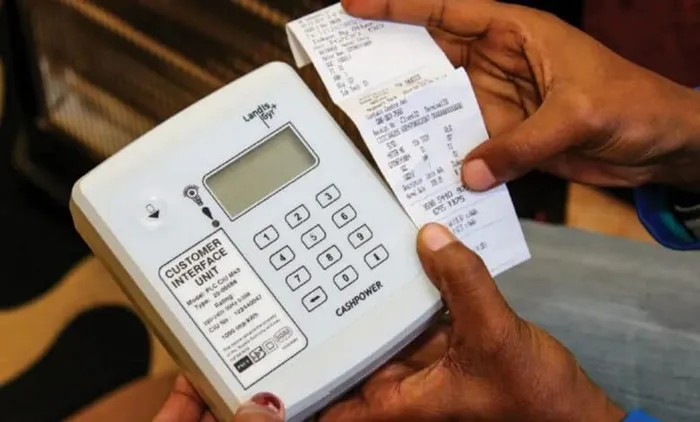It’s about time South Africans paid the right price for power
New hope

The writer says citizens deserve fairness, accountability, and transparency in the principles used to calculate electricity costs.
Image: Supplied
THE recent court ruling against the National Energy Regulator of South Africa (Nersa) marks a significant turning point in determining electricity tariffs in the country. Beyond the legal jargon and regulatory frameworks, this decision represents a substantial victory for citizens who deserve fairness, accountability, and transparency in the principles used to calculate electricity costs - elements that have long been lacking in how energy prices are set for millions of South Africans.
This ruling is Nersa's third court defeat since 2022. While these court rulings do not alter the current tariffs, they do necessitate a more transparent and accountable process for future rate increases. For too many years, ordinary citizens and businesses have endured a system that often appeared arbitrary and detached from reality. Consumers have faced double-digit price increases for both Eskom and municipal electricity, placing a heavy financial burden on already stretched household budgets.
In many cases, municipalities have implemented blanket tariff increases without proper justification or meaningful public consultation. NERSA’s approval of these increases, without requiring municipalities to provide clear, evidence-based cost-of-supply studies, has left consumers in the dark about how their electricity prices were calculated. The court’s finding that this approach was unconstitutional is not only a technical correction in process; it is a moral correction in principle. It restores the idea that power, quite literally, should be priced on truth — on the real costs of supplying electricity, on the efficiency of the municipality providing it, and on open dialogue with the people who ultimately foot the bill.
This court ruling requires every municipality to conduct and publish its own cost-of-supply study, engage the public in a transparent process, and justify any proposed increase with factual evidence. For South Africans who have long felt powerless when tariffs rise year after year, this is a meaningful step towards justice and accountability.It is an opportunity to rebuild trust in the system. The debate over electricity tariffs goes beyond numbers; it impacts livelihoods and community sustainability. High tariffs hinder growth and burden households, while low tariffs threaten necessary infrastructure investment.
This judgment allows us to pursue a better balance in pricing. For the average household, the impact of this ruling could be transformative. It means that municipalities will no longer be able to hide inefficiencies or mismanagement behind unexplained tariff hikes. It means that consumers have the right to see how their electricity prices are derived, regardless of the amount spent on infrastructure, the losses incurred through inefficiencies, and whether the tariffs accurately reflect the actual cost of service delivery. Transparency brings accountability, and accountability brings fairness. This could also be the start of more equitable pricing.
In many towns and cities, residents pay a uniform tariff regardless of how efficiently their municipality operates or how costly it is to deliver electricity to that specific area. In some regions, this has meant that households have been overcharged, effectively subsidising inefficiencies elsewhere. The court’s insistence on detailed, individual cost studies will help correct this imbalance, ensuring that people pay for what they use — and not for the failures of others. At the same time, this ruling recognises that electricity pricing is not just a matter of economics; it is a matter of social justice.
Many lower-income households bear a disproportionate burden under the current structure, often paying the same or higher rates than more affluent areas. A transparent, cost-reflective approach will enable more targeted subsidies, allowing those who need support the most actually to receive it. When these subsidies are explicit, deliberate, and fair, rather than hidden in complex or opaque pricing models, they will be more effective. This courtroom victory is just the beginning; the real challenge is implementation.
Municipalities must conduct credible cost-of-supply studies that accurately reflect their unique circumstances, including customer base and infrastructure issues. These studies should be publicly accessible and actively discussed with the community, ensuring meaningful public participation that goes beyond just posting notices online. Engaging citizens, addressing their questions, and considering their concerns is essential.
Nersa, as the regulator, should consistently reject tariff increases that lack transparent data or proper consultation, helping to restore public confidence in the system. For businesses in energy-intensive sectors like manufacturing, mining, and agriculture, this decision brings hope for a more stable energy environment. Accurate tariffs enable better planning and informed investment decisions. Households may experience slower tariff increases, fairer pricing, and potential reductions if municipalities are found to have overstated their costs. Most importantly, it brings empowerment.
South Africans will now be able to ask the right questions - not just “why are prices going up?” but “how are they being calculated?” and “what are we really paying for?” That is how a more accountable, citizen-centred energy system is built.
This judgment, in essence, calls for a new era of transparency. It challenges us - municipalities, regulators, businesses, and citizens - to rethink how we value and pay for essential services. As a citizen, I see this as more than an energy story - it is a story about integrity, governance, and trust. It is about ensuring that every rand spent by a South African family or business is backed by value, not inefficiency. The “right price” is not just about numbers on a bill; it is about fairness in our economy and dignity for our people.
The court has spoken. Now, it is up to all of us - regulators, municipalities, and consumers - to make sure that this moment leads to lasting change. If we do, we will not only reshape electricity tariffs but strengthen the foundation of accountability upon which a more equitable South Africa can be built.

Jennifer Reddy
Image: File
Jennifer Reddy is the CEO, Morar Incorporated.
** The views expressed do not necessarily reflect the views of IOL or Independent Media.
Related Topics: